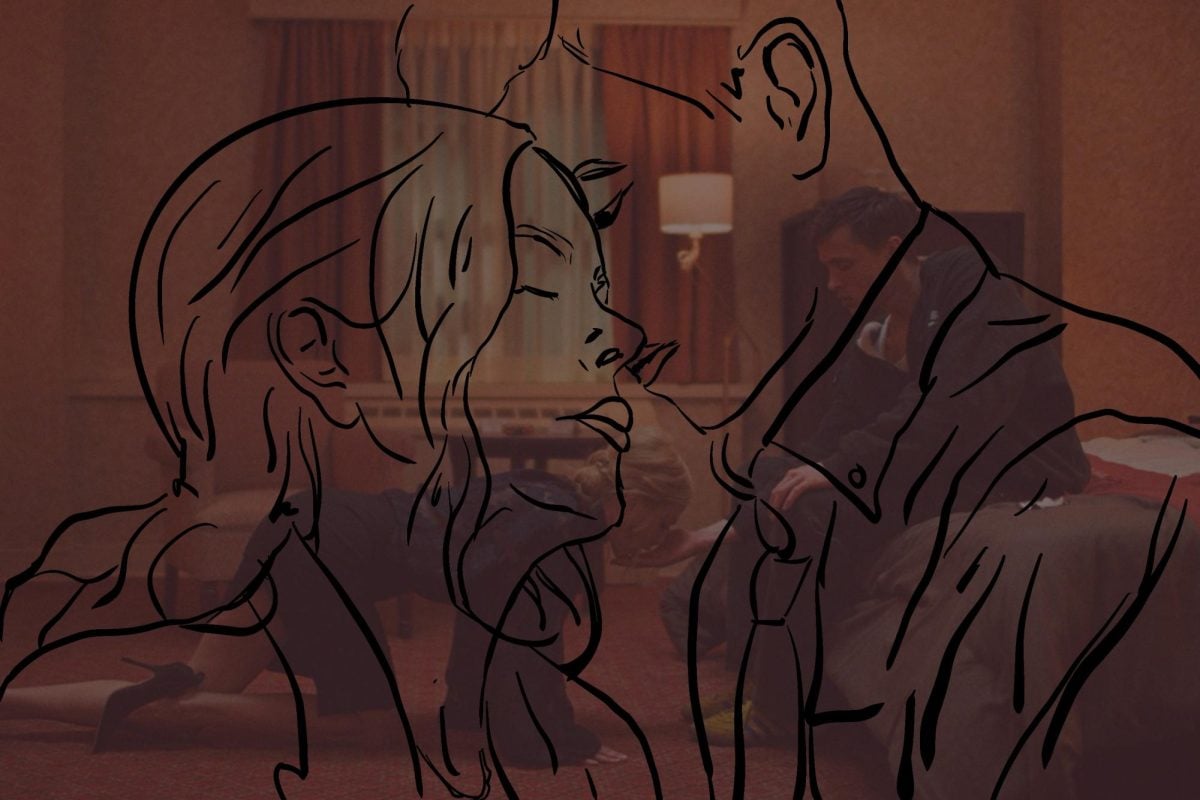This article contains spoilers.
Producer Halina Reijn’s “Babygirl” is a not-so-twisted yet triumphant tale of desire.
Centering a powerful female lead who seemingly has it all, the movie depicts Romy Mathis (Nicole Kidman) as the CEO of a flourishing robotics company, the staid wife to a doting and handsome theatre director, an attentive mother to two energetic teen daughters, a regarded innovator in her field and an inspiration to young women. She is consistently clad in tastefully sexy, fabulous beige-toned power suits and La Perla-style lingerie on a casual Tuesday night for bed.
On top of all of this, in the opening scene of the film, we’re led to believe her doting and handsome husband, Jacob (Antonio Banderas), is able to provide her with visceral, full-body, frenzied orgasms at her command. That is until the satiated, glowing Jacob drifts to sleep. Then, we see a tracking shot cut to her, sneaking off to her laptop to masturbate to BDSM pornography.
This opening sequence brilliantly postures the story with biting possibility, messiness and danger. Samuel, played by Harris Dickinson, tames an out-of-control dog on the streets of Manhattan as Romy heads to work one morning. Allured, Romy watches Samuel with urgency and desire.
Reijn’s take on the quintessential meet-cute here sets us up for what’s to come — of course, Samuel is a new intern at her company. Their chemistry is undeniable and quickly evolves into an office liaison. Dickinson gives a standout performance here, channeling the boisterous boyishness that comes with being a 20-something breaking into a sexy industry. At the same time, there’s something sensual and bare about him.
Soon their relationship becomes a dreamy montage of an explicit sexual affair spanning high-class hotel rooms and modern midtown office buildings alike. These scenes glow with that same warm, romantic aura and lighting that Kubrick mastered in “Eyes Wide Shut” — a nod to one of Kidman’s past roles. Reijn falls short in capturing that space between pleasure and pain in which submissive/dominant relationships may live. Instead, it comes off as a forced depiction of what Hollywood might want these relationships to look like as opposed to what they are.
The storyline flirts and edges in the beginning, making the climaxes all the more satisfying. What’s lacking, to take the metaphor one step further, is that post-orgasm clarity. That deep sense of calm and satisfaction. Perhaps withholding that was the point. Maybe we’re given that effect with Reijn’s reimagining of the classic feel-good Hollywood romantic film-style ending — Romy gets back with her husband, Samuel is out of the picture and Jacob embraces his wife, kinks and all.
Yet, there’s something contrived about this ending, especially given the intrusive laziness, hastiness and middling parts of the film. The ending works, but how we got there makes it feel like a cheap thrill.
This film slouches toward giving its characters real stakes for their unconventional affair. There are latent emotional and professional consequences, creeping into the background where they ultimately remain.
To give credit where credit is due, the performances in this film were mighty, and at times, truly beautiful. Kidman takes Romy to her breaking point, daring herself and daring us in the process. She strips the material she’s been given, via this character, down to bare bones, exposing herself with a rigorous vulnerability that is truly incredible.
If nothing else tempts you, go for the sight of Harris Dickinson, Magic Mike-style, gloriously grinding on Kidman to the late-great George Michael’s hit “Father Figure.” It aims to please and does so beautifully.
Email: sophiagutierrez2027@u.northwestern.edu
Related Stories:
— Reel Thoughts: ‘The Bachelor’ Season 28 is all roses, no thorns
— Reel Thoughts: ‘Bird’ is a triumphant coming-of-age gem
— Reel Thoughts: ‘The Apprentice’ satisfies all our perverse curiosities about Donald Trump













